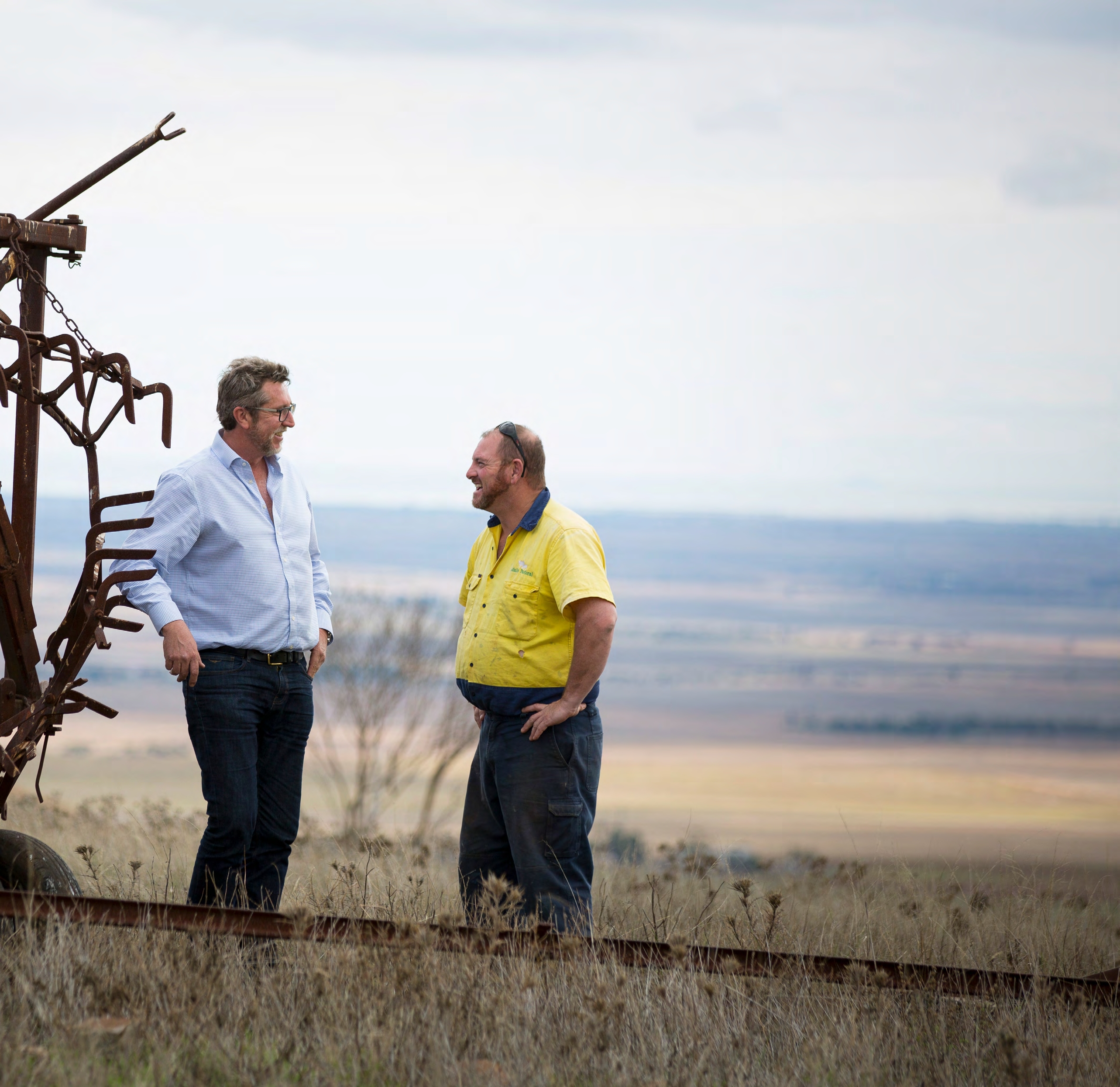The Best Practice Charter for Renewable Energy Projects is a voluntary set of commitments for developers.
The Charter outlines a commitment by signatories to engage respectfully with the communities in which they plan and operate projects, to be sensitive to environmental and cultural values and to make a positive contribution to the regions in which they operate.
Signatories must report on how they’re meeting their commitments every year.
The commitments
- We will engage respectfully with the local community, including Traditional Owners of the land, to seek their views and input before submitting a development application and finalising the design of the project.
- We will provide timely information and be accessible and responsive in addressing the local community’s feedback and concerns throughout the life of the project.
- We will be sensitive to areas of high biodiversity, cultural and landscape value in the design and operation of projects.
- We will minimise the impacts on highly productive agricultural land and explore opportunities to integrate agricultural production.
- We will consult the community on the potential visual, noise, traffic and other impacts of the project, and on the mitigation options.
- We will support the local economy by providing local employment and procurement opportunities.
- We will offer communities the opportunity to share in the benefits of the project, and consult them on the options available, including the relevant governance arrangements.
- We commit to using the project to support educational and tourism opportunities where appropriate.
- We will demonstrate responsible land stewardship over the life of the project and welcome opportunities to enhance the ecological, cultural and/or agricultural value of the land.
- During the life of the project, we will recycle waste materials where feasible and commit to responsible decommissioning or refurbishment/repowering of the site at the end of the project's life.
Best Practice Charter 2025 reports
The most comprehensive picture yet of the local benefits and contributions clean energy projects are delivering across Australia
The Best Practice Charter signatory reports for 2025 contain more than 400 examples of how renewable energy developments are delivering for local communities, Traditional Owners, landholders and the environment.

Signatories
If your company would like to sign the Best Practice Charter for Renewable Energy Projects, please get in touch:

Governance arrangements
The commitment
Signatories (defined as those companies who commit to honour the Charter) of the Best Practice Charter for Renewable Energy Projects (‘The Charter’) agree to honour the commitments set out in the Charter for the projects and assets they develop following their joining the Charter.
Public display of commitment
The Clean Energy Council will maintain and publish an up-to-date list of Signatories to the Charter on this page. Signatories must publish a copy of the signed Charter on their corporate and project websites.
Eligibility
Signatories to the Charter must be involved in the development, delivery and operation of large-scale renewable energy facilities.
Voluntary withdrawal from the Charter
A Signatory may decide at any time to withdraw from the Charter. In doing so, the Signatory’s brand will be removed from the Charter/list of Charter Signatories, and the Signatory should also remove the Charter from its website and cease to display the Charter or use it in its public communications.
Changes to the Charter
The Charter will be reviewed on a periodic basis to ensure that it continues to reflect best practice. Should a proposal be made to alter the Charter wording, the Clean Energy Council will consult all Signatories and the relevant Clean Energy Council Directorates on any proposed changes.
Final determination as to whether the Charter should be amended will be made by the Clean Energy Council.
The CEC will provide a reasonable notice period for any change, and Signatories will be required to update the Charter on their website or other channels.
Honouring the Charter
In honouring the Charter, Signatories are solely responsible for managing any concerns raised directly with them or via the CEC.
The CEC may approach companies in the event that it is concerned with a Signatory’s commitment to honouring the Charter, and reserves the right to:
- remove the company as a Signatory
- request that the Signatory cease to display the Charter on its website/s or in any other public and private forums
- request that the Signatory cease to refer to itself as a Signatory to the Charter, and
- publish on the Clean Energy Council website the date that the Signatory was removed.
In the event that a Signatory to the Charter sells an asset, companies accept responsibility for passing on commitments contained within the Charter to the purchaser/s.
Reporting
Signatories are required to report annually how they are adhering to the 10 commitments across their portfolio. The CEC expects signatories to report on how they are engaging respectfully with the communities in which they are operating, how they are being sensitive to environmental, agricultural and cultural values and how they are making a positive contribution to the regions in which they operate.
Each signatory’s latest annual reporting against the Best Practice Charter will be published on the CEC website.
Failure to provide this annual reporting within a reasonable timeframe will lead to a company being removed as a signatory. The Signatory’s logo will be removed from the Charter/list of Charter Signatories, and the Signatory must also remove the Charter from its website and cease to display the Charter or use it in its public communications.
Not yet a member?







